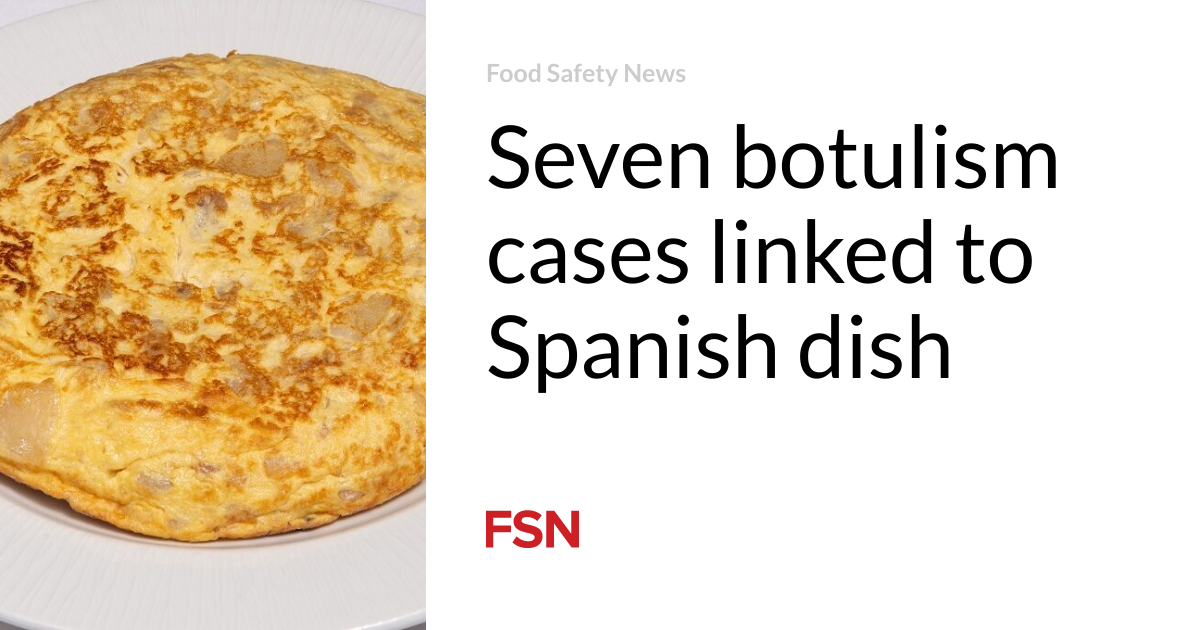Spanish health officials are investigating four confirmed and three probable foodborne botulism cases.
The Spanish Agency for Food Safety and Nutrition (AESAN) said cases have occurred in several different regions.
There is a common link to consumption of different packaged brands of Spanish omelet (tortilla de patata), which is made with potatoes and eggs, purchased in different supermarkets in the days before illness onsets.
Seven ill people have a history of eating Spanish omelets before getting sick. Four laboratory-confirmed cases have symptom onset dates between June 24 and July 4 and the three probable cases have onset dates between June 21 and July 10. Sick people ate the suspect product between June 19 and July 5. At least three people have been hospitalized but no deaths have been recorded.
In Spain, there are two confirmed cases in Galicia and Asturias. Patients are aged 49 and 50. Both were hospitalized and required treatment in an intensive care unit. Probable patients live in Valencia, Madrid, and Andalusia. Patients are aged 27, 43 and 49. The sick person in Madrid needed treatment in an intensive care unit.
Italy also recorded two cases of botulism linked to Spanish omelets consumed in Spain. Patients are a 23-year-old woman and her 61-year-old father who returned home from Valladolid on July 1, having consumed the suspect item on June 30.
Botulinum poisoning is a rare but life-threatening condition, caused by toxins produced by Clostridium botulinum bacteria. It can come on quickly and usually paralyzes some muscles, including respiratory muscles.
Attempts to find the cause
Three confirmed patients and one probable patient mentioned products from the same company during interviews. However, investigations into the product and processes have not yet determined if it is the source. Work with the company is ongoing and looking at production, distribution, storage and transport processes.
A retailer, Ahorramas, has decided to withdraw from sale products possibly implicated in epidemiological surveys. These are the Spanish omelet with and without onions of the brand Alipende.
So far this year in Spain, 21 other suspected cases of botulism have been reported.
Spanish officials reminded consumers of the importance, especially in summer due to the heat, of preserving food products at the storage temperatures indicated on the label, following the instructions for use and expiry date as indicated by manufacturers. They added the packaged Spanish omelet products should be kept refrigerated.
In foodborne botulism, symptoms generally begin 18 to 36 hours after eating contaminated food. However, they can occur as soon as six hours or up to 10 days later. Symptoms may include double or blurred vision, drooping eyelids, slurred speech, difficulty swallowing or breathing, paralysis, a thick-feeling tongue, dry mouth, and muscle weakness.
Anyone who has eaten the suspect product and developed symptoms should immediately seek medical attention.
(To sign up for a free subscription to Food Safety News, click here.)

